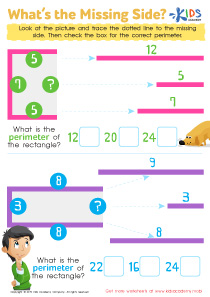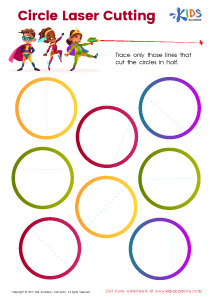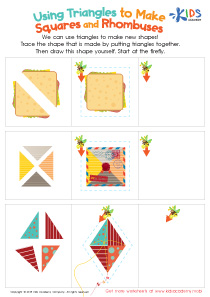Shape Recognition Normal 2D Shapes Worksheets for Ages 6-8
14 filtered results
-
From - To
Boost your child's geometry skills with our Shape Recognition Normal 2D Shapes Worksheets for ages 6-8! Designed for young learners, these engaging activities help kids identify, differentiate, and understand a variety of 2D shapes. Our expertly crafted worksheets introduce basic geometric concepts through fun exercises, puzzles, and creative tasks, ensuring a solid foundation in shape recognition. Tailored for children aged 6-8, these worksheets support classroom learning and at-home practice, enhancing spatial awareness while fostering a love for math. Dive into our comprehensive collection today to see your child’s confidence and proficiency in geometry soar!
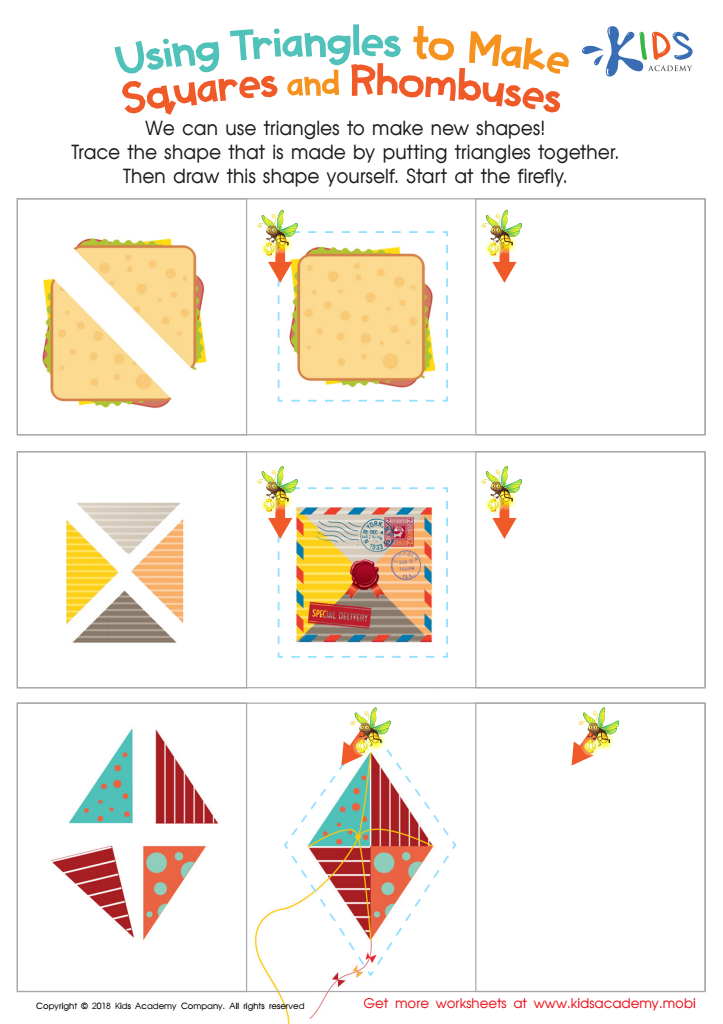

Using Triangles to Make Squares and Rhombuses Worksheet
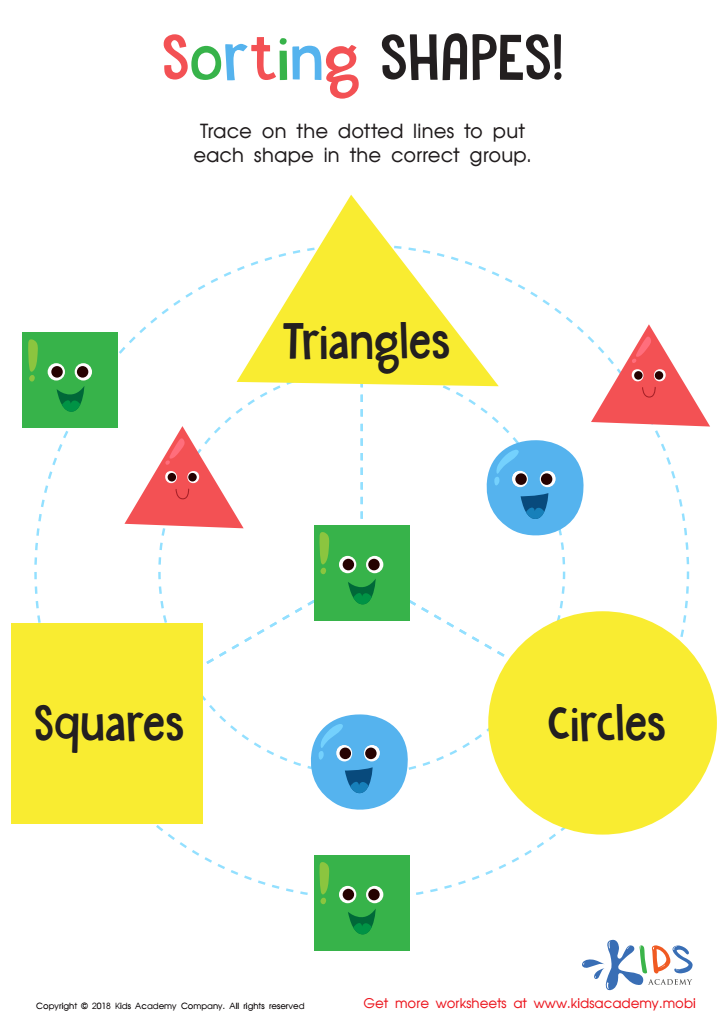

Sorting Shapes - Part 3 Worksheet
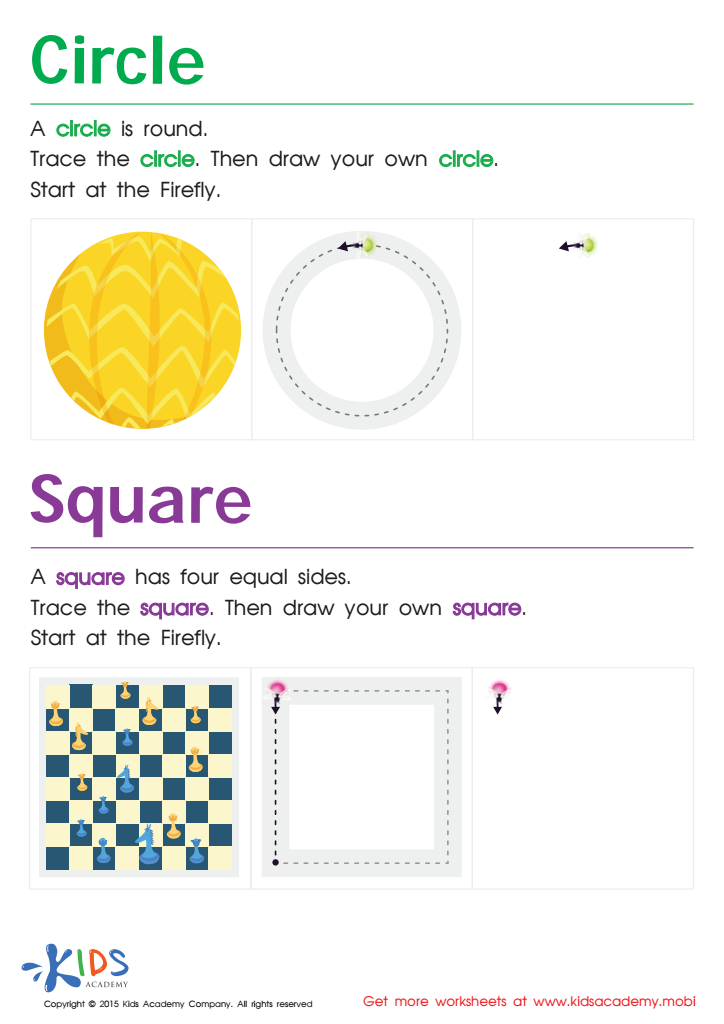

Trace And Draw a Circle And a Square Worksheet
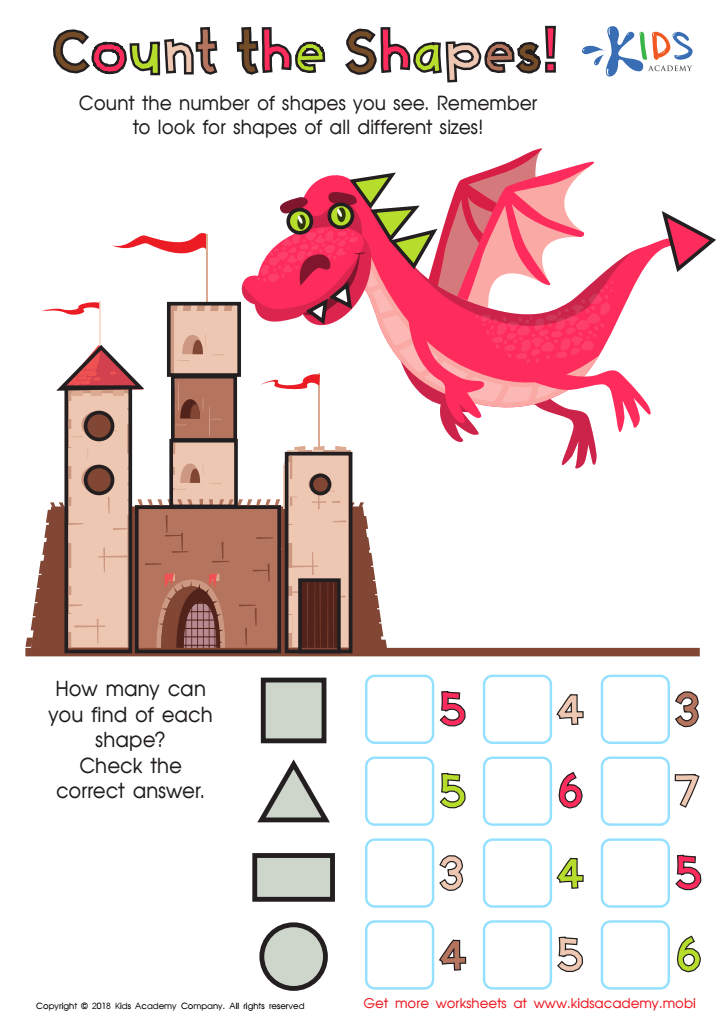

Count the Shapes Worksheet
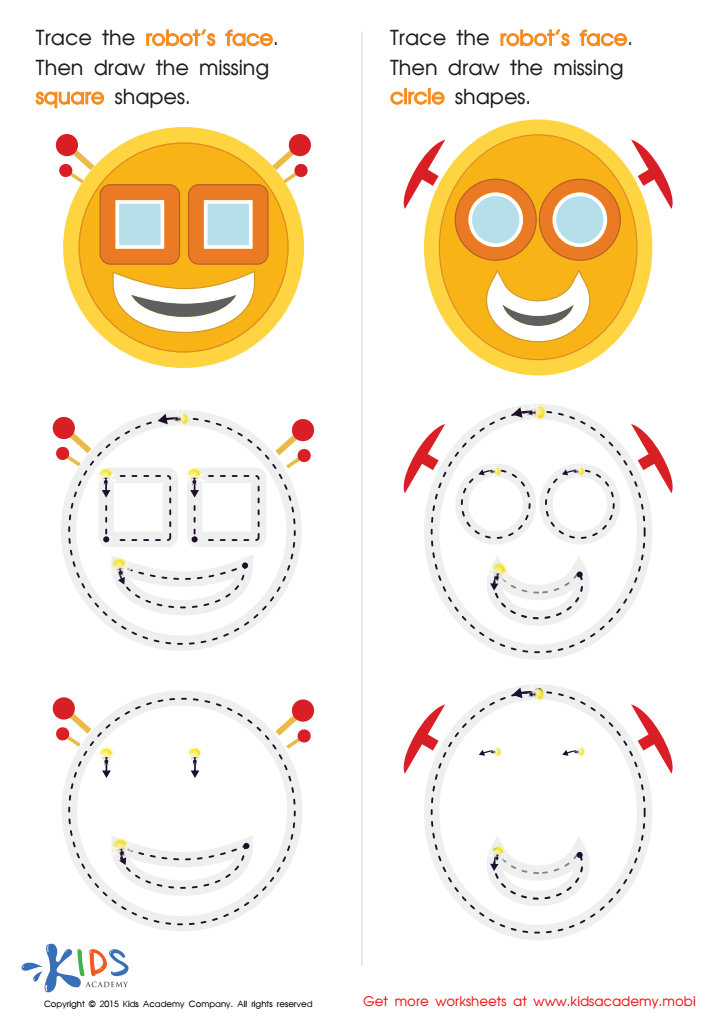

Practicing to Draw Circles And Squares Printable
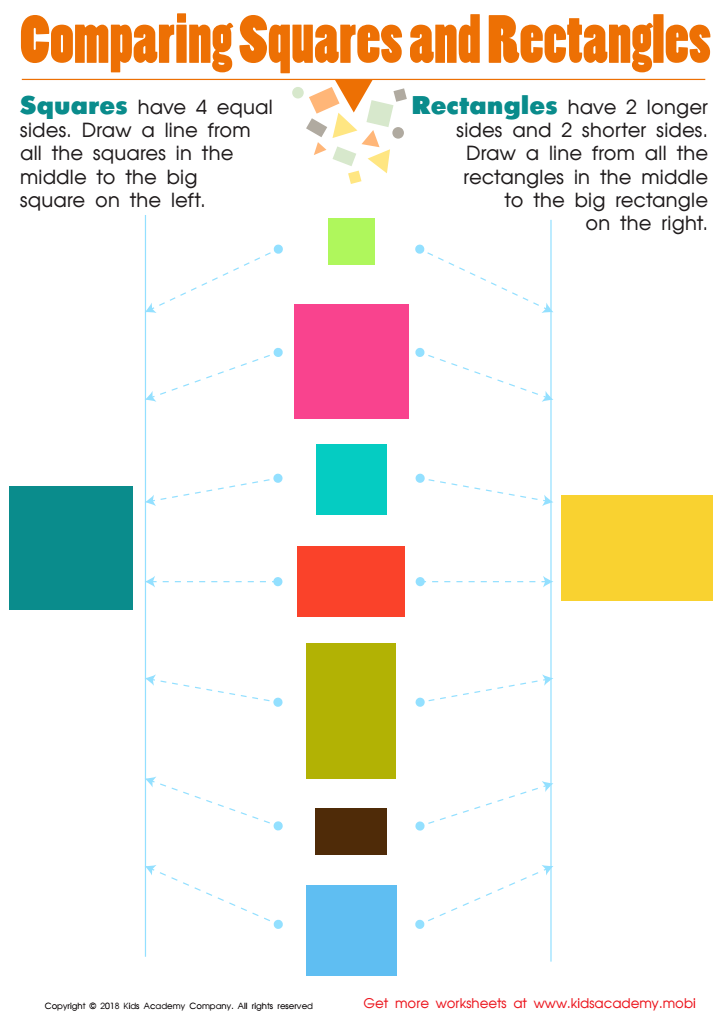

Comparing Squares Rectangles Worksheet
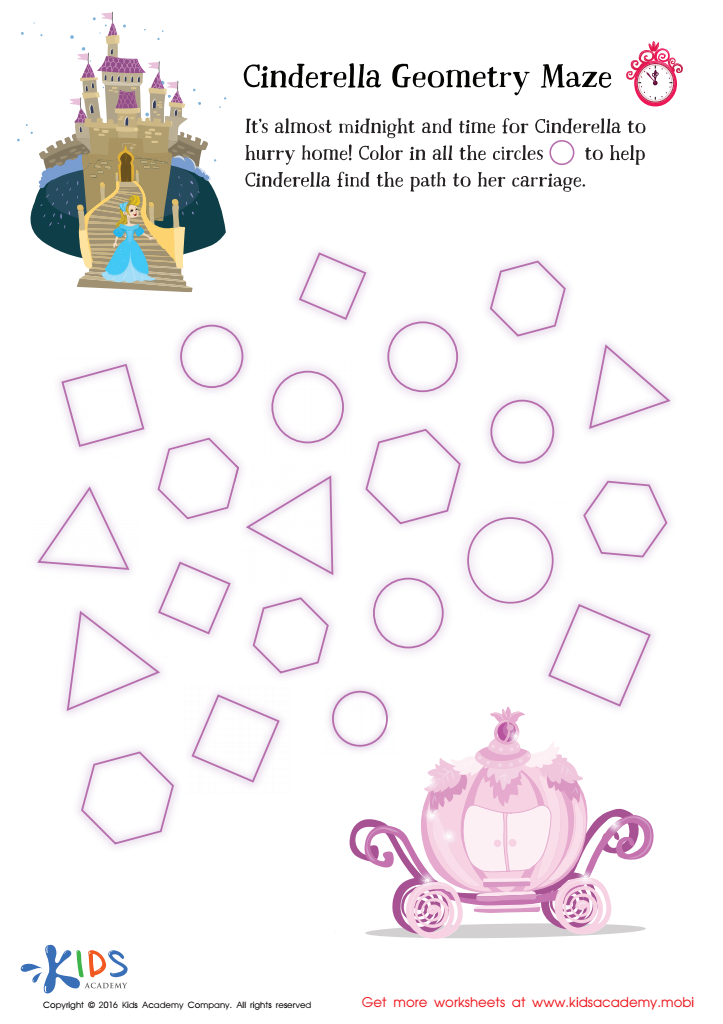

Cinderella Geometry Maze Worksheet


Preschool Geometry Match Up Worksheet
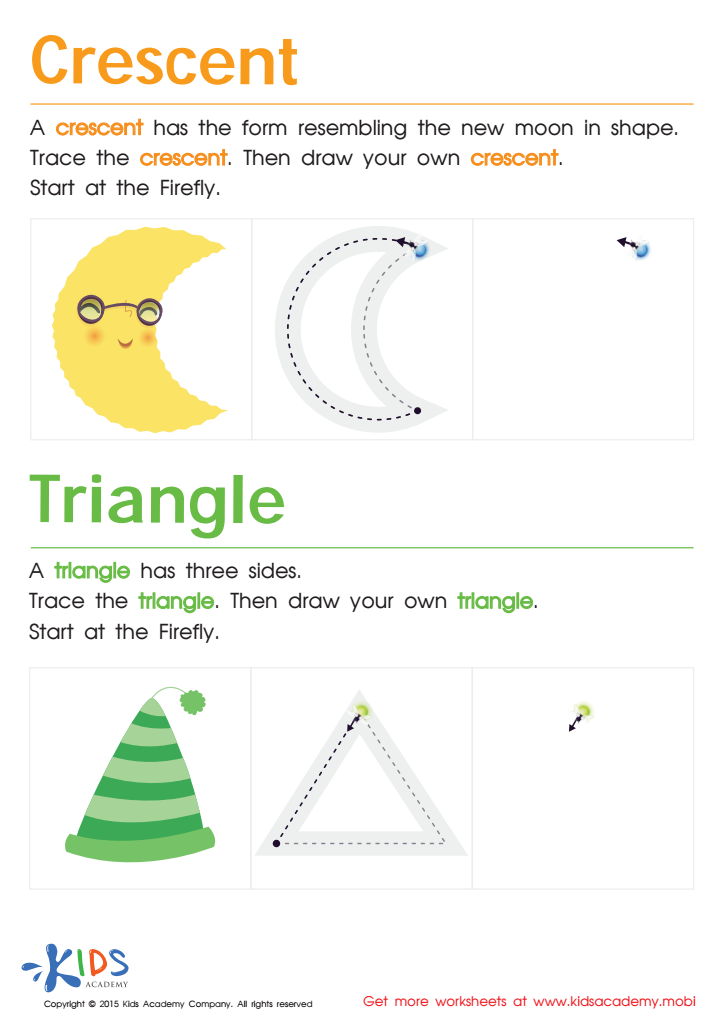

Learning to Draw Crescents And Triangles Worksheet
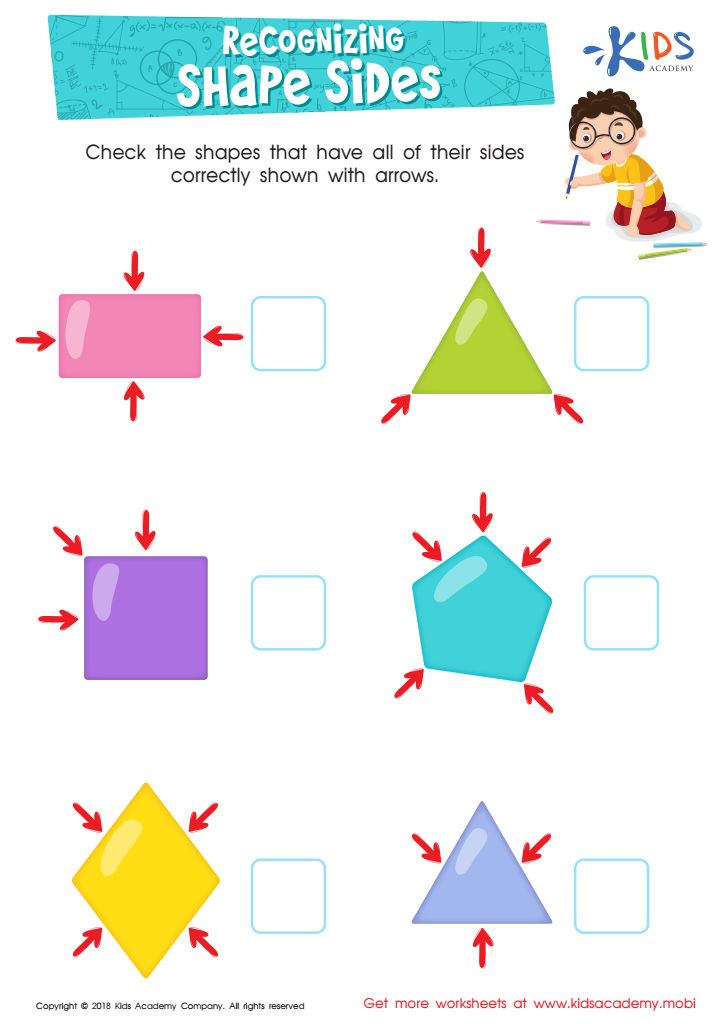

Recognizing Shape Sides Worksheet
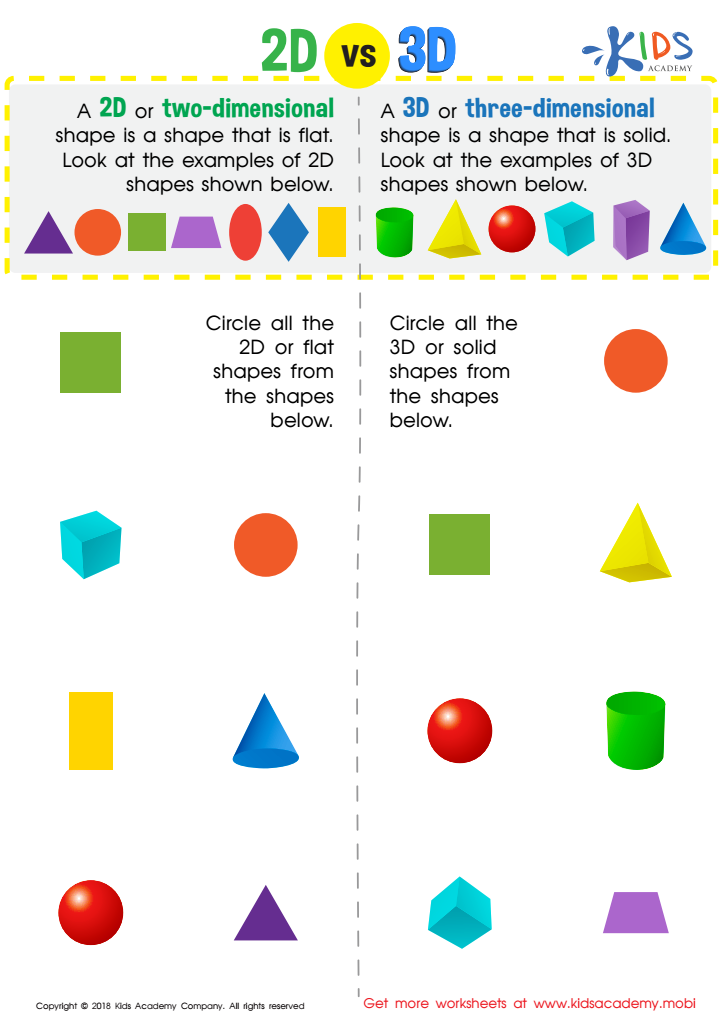

2D vs 3D Shapes Worksheet
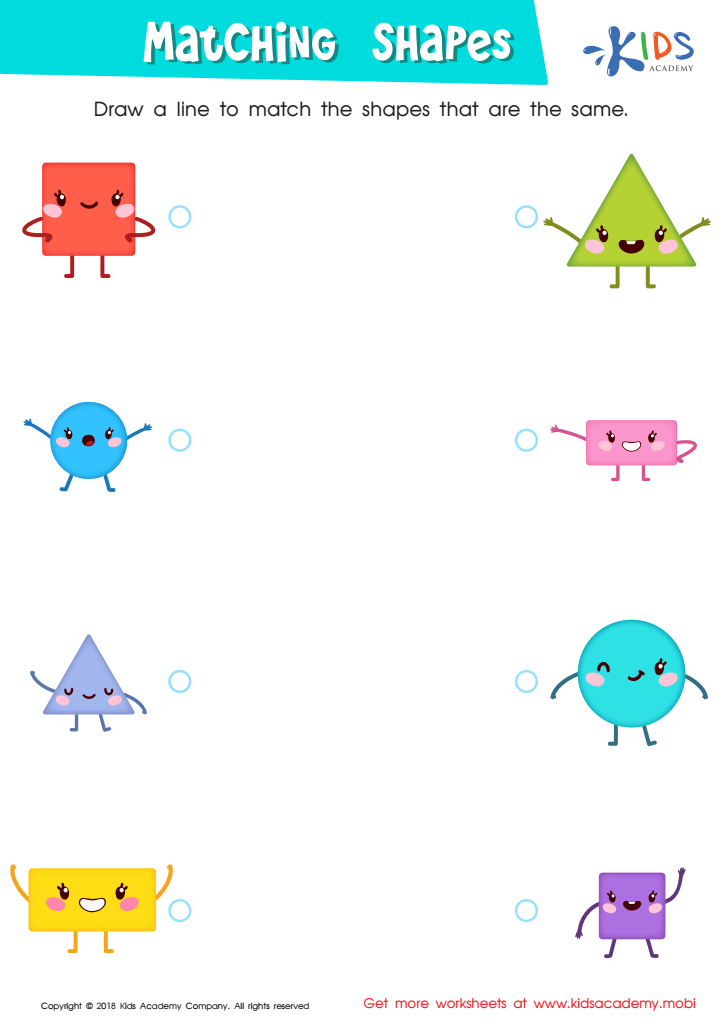

Matching Shapes Worksheet
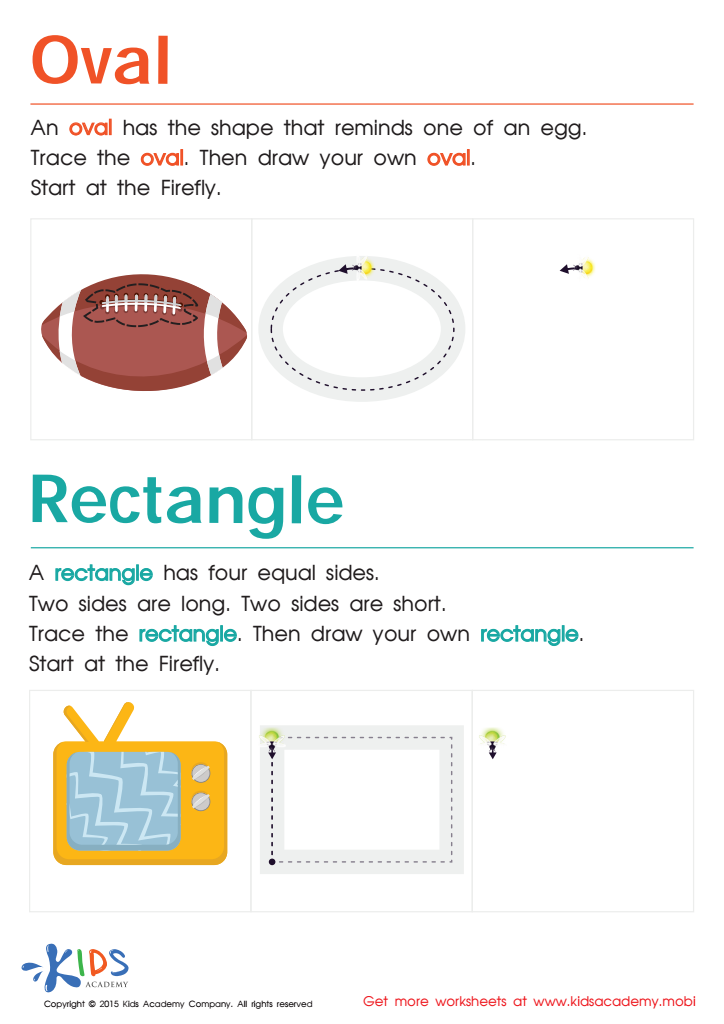

Easy Drawing of Ovals And Rectangles Worksheet
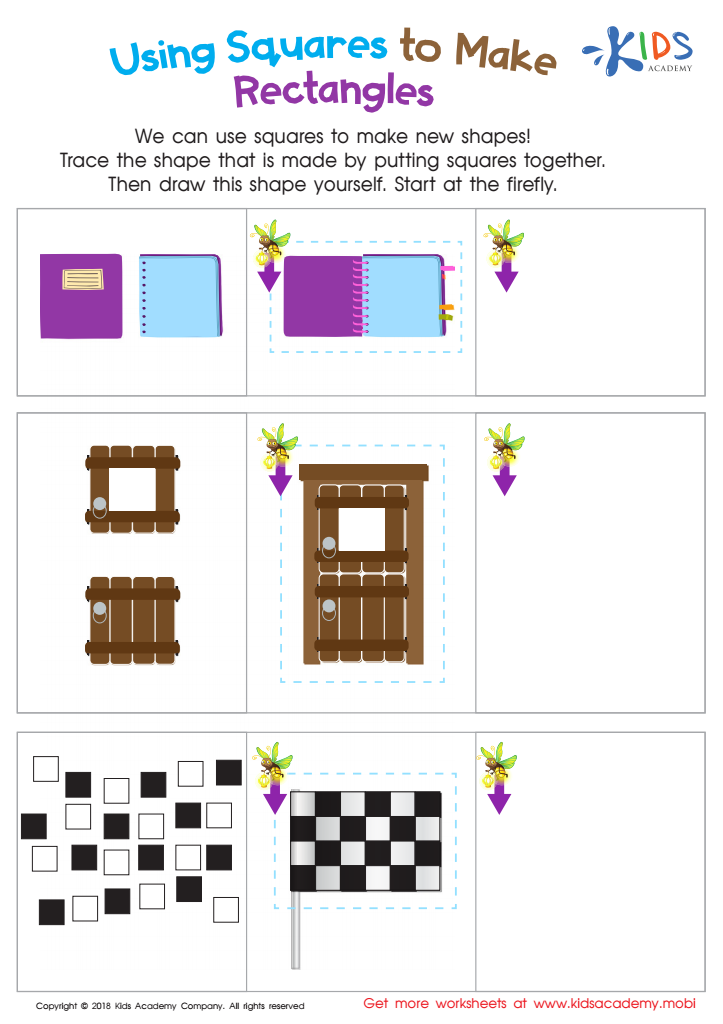

Using Squares to Make Rectangles Worksheet
Shape recognition is a fundamental skill that lays the groundwork for a child's future success in mathematics, reading, and even everyday problem-solving. For children aged 6-8, becoming familiar with normal 2D shapes such as circles, squares, triangles, and rectangles is crucial for multiple reasons.
Firstly, understanding 2D shapes aids cognitive development. It boosts a child's ability to classify and categorize objects, paving the way for more complex thinking patterns. This categorization is not just limited to shapes but extends to real-world applications, helping children make sense of their environment.
Moreover, learning to recognize shapes enhances spatial awareness. Spatial recognition is an important aspect of geometry, helping young learners visualize and manipulate objects in their minds. This skill will later play a crucial role in subjects like science, technology, engineering, and art, forming a basis for tasks ranging from simple map reading to complex architectural design.
Furthermore, shape recognition is interconnected with literacy skills. For example, the ability to distinguish between different shapes improves a child's ability to recognize letters and numbers, contributing directly to reading and writing proficiency.
Parents and teachers, by focusing on shape recognition during these formative years, equip children with the necessary tools to navigate more advanced educational concepts. This foundational skill serves as a stepping stone for holistic intellectual development, encouraging a lifelong love for learning.

 Assign to My Students
Assign to My Students










